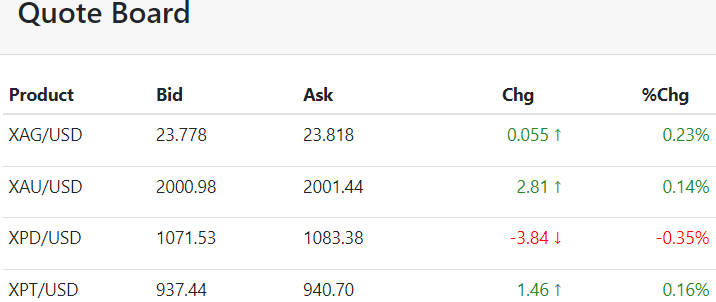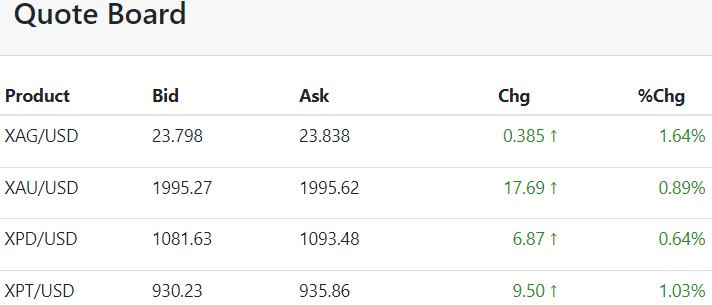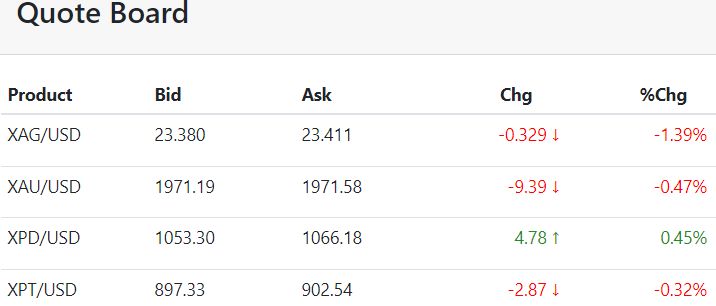Zaner Daily Precious Metals Commentary
Wednesday, November 22, 2023Gold prices rose slightly overnight, even as the dollar index managed to rebound off of its 200-day moving average. This support level for the dollar gives the gold bears something to get excited about.
Gold is still digesting yesterday's FOMC Minutes as it shows the Fed is weary of worsening financial conditions. But with the bond yields failing to fall further overnight, we might expect gold bulls to take a break.
Today's focus will be on this morning's Durable Goods release, where the market is expecting a rather large drop from last month...[MORE]
Please subscribe to receive the full report via email by clicking here.


